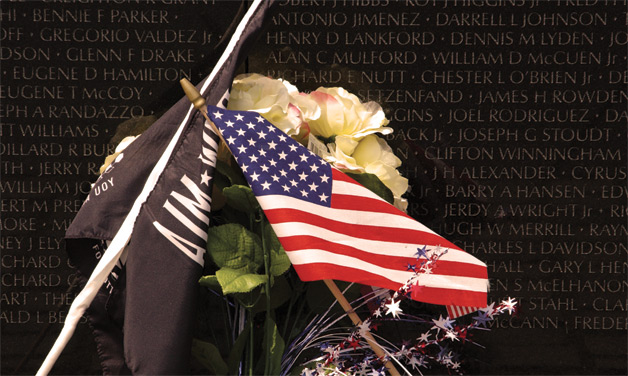
The importance of remembrance
I remember Lonnie Weisheit like I saw him yesterday.
He’d be about my age now, probably with grandchildren. Yet he lives in my memory as the smiling, dark-haired 20-year-old who went through Army basic training with me at Fort Knox, Ky., and advanced infantry training at Fort Ord, Calif. We both went to Vietnam. I came home. Lonnie didn’t.
Every time I’m in Washington, D.C., I go to the Wall to honor the 58,282 Americans killed in the war and the thousands more injured or still missing. On Panel 9W, Row 77, is Lonnie’s name. The letters, etched in granite, are a lasting tribute. But I can’t help but see beyond them to the young corporal who grew up in Lynnville, Ind., 10 miles from my hometown, and was killed by enemy fire at Hua Nghia. He was someone’s son, and he was my friend.
In one more generation, most of us who knew Lonnie and all the others we lost in Vietnam will be gone. Even now, we’re holding fast to the few who have firsthand memories of those who died in World War II and Korea. On a day not too far off, our last living connections to these wars will be severed, and their dead will forever belong to history.
The responsibility of remembrance falls to all of us – not just The American Legion and other veterans organizations, not just those serving in uniform, but every man, woman and child who woke up this morning in the land of the free. It’s a fading priority, though, in this busy, fast-changing world where the meaning of Memorial Day is drowned out by mattress sales and barbecues.
More than ever, our elected leaders must set the example by making sure our military is able to render proper honors to the nation’s fallen. Instead, sequestration threatens to encroach on this sacred obligation. At home and around the world, U.S. forces are still fighting on our behalf and protecting us at home, but with far less. That means hard choices about where the money goes, so we can expect diminished representation in this year’s Memorial Day observances. No flyovers. Limited troop formations. Fewer bands playing the national anthem.
In Europe, where some 101,000 American soldiers, sailors, airmen and Marines are buried, this is embarrassing. Many U.S. cemeteries will have only a color guard and one military officer as guest speaker. The largest of these, the Meuse-Argonne, is the site of the U.S. Army’s deadliest battle, with 26,277 killed and 95,786 wounded. For the first time, the Army won’t have a presence at the ceremony there.
Some may see these as unnecessary expenses, but consider that during the Great Depression, the United States built eight federal monuments on foreign soil commemorating Americans who fought in World War I. Congress paid for Gold Star Mothers to make a pilgrimage to their sons’ graves overseas. What message do we send to other nations when giving full honor to our war dead is suddenly subject to the budget axe? What does it say to the men and women serving today?
Remembering the fallen in a manner befitting their sacrifice is not a luxury. It is our solemn duty. These aren’t the kind of budget cuts Americans want.
- Magazine

